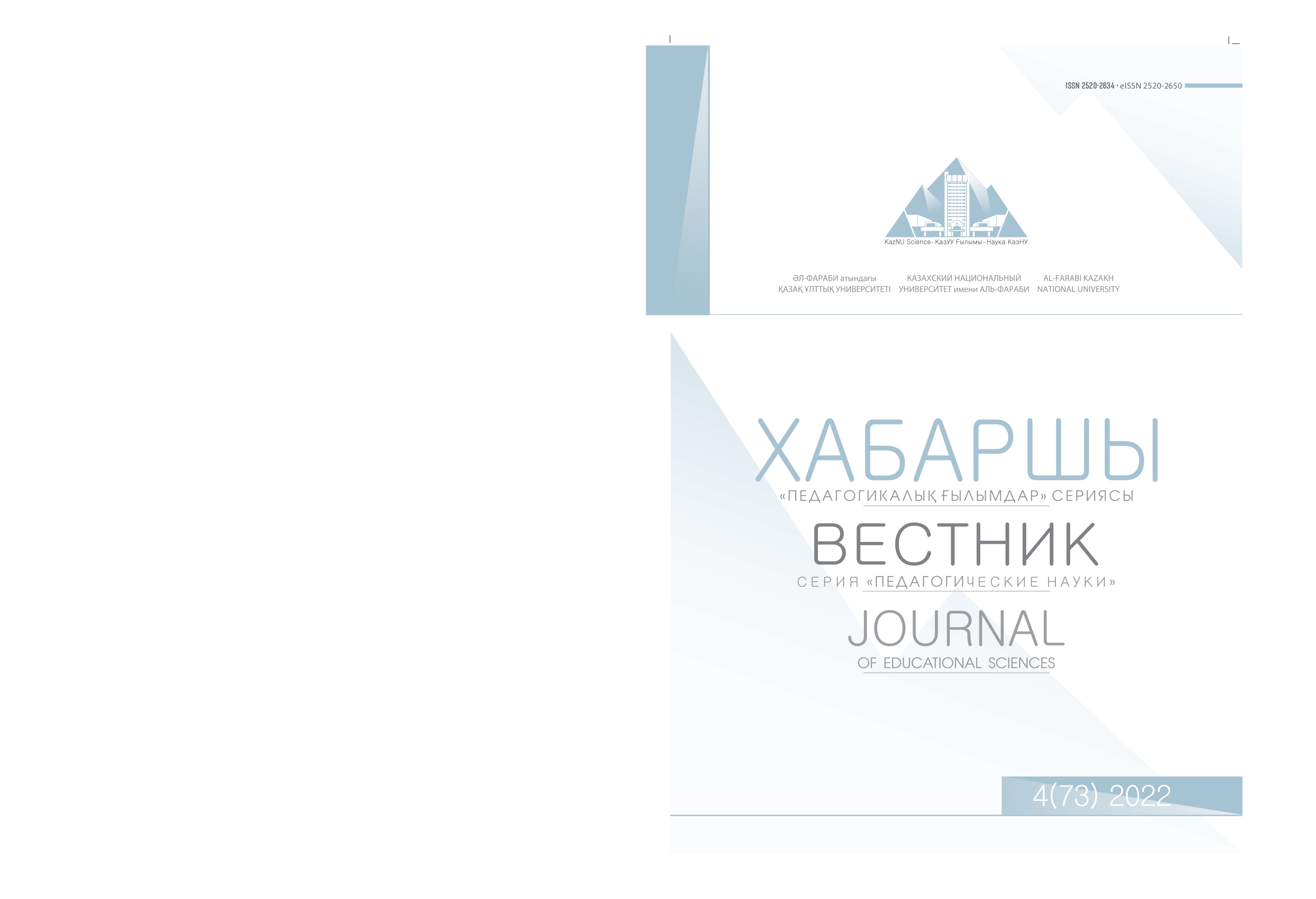Technologies for forming media culture of school teachers
DOI:
https://doi.org/10.26577/JES.2022.v73.i4.04Abstract
In the article, the author conducts a theoretical analysis of the concepts of "media culture", "media education", "media literacy", the constituent structural components of media culture. A complex system of mass communication that affects the media environment of society is considered. Media culture is a special type of information society culture, which is a key link in modern society. The author emphasizes the importance of forming the media culture of future teachers, conducting a critical analysis of information sources by teachers, since they play an important role in informing and developing the individual. The technologies of formation of media culture are analyzed, special attention is paid to the role of media in the development of the creative abilities of the individual and the formation of public consciousness. The content of the article provides examples from the practice of advanced states and describes the level of development of media culture as a whole. A survey of 21 students of the Kazakh National University named after al-Farabi on media culture was conducted. It was found that 52% had a low level, after which a program for the development of media culture among students was drawn up. After the training, the level of media culture was re-measured, 62% showed a high level, 20% showed an average level, and 18% showed a low level. Possession of media literacy and media culture by students contributes to the ability to competently use modern operational devices, Internet resources, helps to realize the possibilities of using automated programs in the educational process, etc.
Keywords: media culture, media literacy, media education, multimedia, information literacy, media technology















